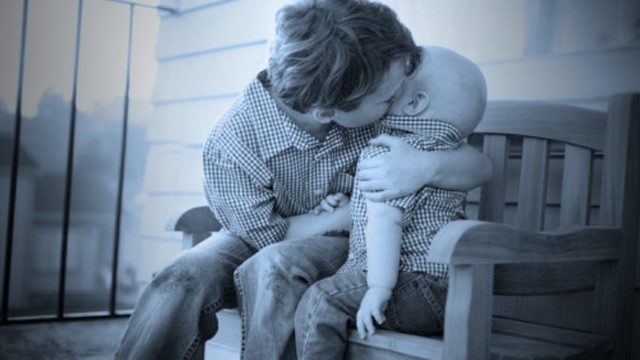"Logan was our first experience with autism," said William Hawn, 34, of Modesto, Calif.
Earlier studies are consistent with Aaron's pediatrician. Infants who have siblings with autism have a 3 to 10 percent increased risk for autism, a higher chance than the 1 percent risk among the general population.

The study, considered the largest autism study to follow infants for sibling recurrence, found that infants with an older autistic sibling have a near 19 percent risk that they too will develop the disorder.
Within three years, nearly 19 percent of the infants were diagnosed with autism. Since there are other risk factors for autism that could include genetic markers, an individual family's risk differs, Ozonoff said.
In fact, many parents overestimate the recurrence risk. Ozonoff said in her clinic, many parents predict as high as 50 percent likelihood that their subsequent child will have autism.
Ozonoff said the findings could also change the way pediatricians examine infants with familial risk for autism.
A closer look at infants at higher risk could lead to earlier detection of autism symptoms, Ozonoff said.
Parents of a child with autism face a risk of almost one in five that their next child will also develop the disorder, say researchers.
The risk is higher than previous estimates – and goes even higher if the second child is a boy.
The study of 664 children by researchers in the U.S., Canada and Israel is the largest ever into the risk of recurrence of autism among siblings.
Previous estimates put the risk at between 3 and 10 per cent that an infant with an older sibling with autism would also develop the disorder, which affects the ability to interact socially and communicate.
But the new study found a ‘substantially higher’ risk rate of 18.7 per cent on average.
However, the risk rises to over 26 per cent if the second child is male – because the disorder is mostly found among boys – and over 32 per cent for infants with more than one older sibling with autism.
The overall rate of autism among all study participants was 18.7 per cent.
In families with one older child with autism, or simplex families, the rate of incidence was 20.1 per cent.
In families with more than one sibling with autism, the recurrence rate was 32.2 per cent.